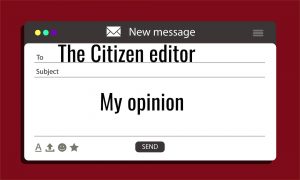On Tuesday evening, December 17, Peachtree City hosted a Town Hall meeting to discuss HB581, Georgia’s newly enacted property tax exemption law. The purpose of the meeting was to provide residents with an overview of the law, address questions, and gather feedback from the community.
More than 40 residents attended the meeting in person in Council chambers. A video recording of the meeting can be accessed at https://rb.gy/wzy7ic.
HB581, which was Amendment 1 on the November ballot, amends the Georgia Constitution. HB581 passed in Fayette County with 57% in favor and 43% against. The ballot measure includes an opt-out clause, allowing cities and counties to choose whether to participate.
Peachtree City leaders, in collaboration with neighboring municipalities and Fayette County, are currently assessing the potential impact of HB581 and determining the best course of action to serve the citizens of this community. While opting into the law is automatic, opting out requires three public hearings and submission of a Resolution to the Secretary of State by March 1, 2025.
At its core, HB581 limits property tax increases for homesteaders, capping them to the rate of inflation, as defined by the Consumer Price Index (CPI) set annually by the Georgia Revenue Commissioner. As a result, homesteaders in Georgia will immediately benefit from a maximum cap on property tax growth. This cap will not apply to rental properties, industries, or commercial properties. The new exemption will not affect any existing homestead exemptions such as the senior homestead exemption.
The law also introduces the option for local governments to place a one-cent sales tax on the ballot, known as the Flexible Local Option Sales Tax (FLOST). This new sales tax would be intended to replace revenue lost from the reduced property taxes. A dollar-for-dollar millage rate reduction must offset any excess revenue from the FLOST. The FLOST, if approved by voters, would last for five years.
However, if voters reject the FLOST, cities and counties could potentially be forced to either reduce services or raise millage rates as the exemption’s effect increases year over year. This could signal quite a shift for Peachtree City, as we have reduced our millage rate from over 7 mills to less than 6 mills over the recent 12-year period.
Peachtree City, Fayetteville, Tyrone, Brooks, Woolsey, and Fayette County officials have held three meetings so far to discuss HB581’s long-term implications. I am confident that our strong and positive collaboration will point to a unified decision.
Interestingly, at the Town Hall, citizen questions and comments echoed the discussions taking place among city and county leaders. Among the points of consideration is the belief that voters supported HB581 and now expect it to be implemented. For elected officials, opting in may be seen as a way to honor that voter intent. However, concerns remain over the potential challenges of securing voter approval for the FLOST, as well as the long-term sustainability of the tax exemption model as a whole.
Other challenges include the complexity of the law, particularly the millage rate rollback that applies to all property types—residential, industrial, and commercial—if FLOST revenue exceeds the property tax exemption. Local officials and especially the Fayette County Development Authority work to increase the industrial tax base and improve the balance of residential and industrial property taxes. This detail of HB581 runs counter to those efforts.
Some also questioned whether the short-term relief for homesteaders would be outweighed by potential long-term revenue shortfalls. HB581 is being compared to California’s Proposition 13, a 1978 law that limited property tax increases to two percent per year.
The potential for disparities between counties, depending on whether they opt in or out of the program, could have unforeseen consequences, particularly in the real estate market.
Notably, school systems may opt-out without consequence. The FCBOE has indicated they will vote to opt-out.
No votes were taken during the Town Hall. Instead, it was emphasized that the meeting was an opportunity for transparency and open communication, with the goal of ensuring all residents are informed and have the opportunity to provide feedback during the decision-making process.
For those with additional questions or comments, City and County leaders encourage residents to reach out via email. Peachtree City Council can be contacted at [email protected].
Kim Learnard, Mayor
Peachtree City









Leave a Comment
You must be logged in to post a comment.